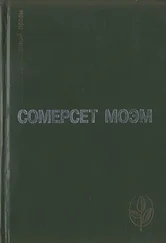Уильям Моэм - Orientations
Здесь есть возможность читать онлайн «Уильям Моэм - Orientations» весь текст электронной книги совершенно бесплатно (целиком полную версию без сокращений). В некоторых случаях можно слушать аудио, скачать через торрент в формате fb2 и присутствует краткое содержание. Год выпуска: 2014, Издательство: epubBooks Classics, Жанр: Классическая проза, на английском языке. Описание произведения, (предисловие) а так же отзывы посетителей доступны на портале библиотеки ЛибКат.
- Название:Orientations
- Автор:
- Издательство:epubBooks Classics
- Жанр:
- Год:2014
- ISBN:нет данных
- Рейтинг книги:5 / 5. Голосов: 1
-
Избранное:Добавить в избранное
- Отзывы:
-
Ваша оценка:
- 100
- 1
- 2
- 3
- 4
- 5
Orientations: краткое содержание, описание и аннотация
Предлагаем к чтению аннотацию, описание, краткое содержание или предисловие (зависит от того, что написал сам автор книги «Orientations»). Если вы не нашли необходимую информацию о книге — напишите в комментариях, мы постараемся отыскать её.
Orientations — читать онлайн бесплатно полную книгу (весь текст) целиком
Ниже представлен текст книги, разбитый по страницам. Система сохранения места последней прочитанной страницы, позволяет с удобством читать онлайн бесплатно книгу «Orientations», без необходимости каждый раз заново искать на чём Вы остановились. Поставьте закладку, и сможете в любой момент перейти на страницу, на которой закончили чтение.
Интервал:
Закладка:
Amyntas cowered down in the boat. He gave up hope of life, and lay there for long hours awaiting his end; the water carried the skiff along swiftly, silently. The darkness was so heavy that the columns were invisible, heavy drops fell into the water from the roof. How long would it last? Would the boat go on till he died, and then speed on for ever? He thought of the others who had gone into the cavern. Were there other boats hurrying eternally along the heavy waters, bearing cold skeletons?
He covered his face with his hands and moaned. But he started up, the night seemed less black; he looked intently; yes, he could distinguish the outlines of the pillars dimly, so dimly that he thought he saw them only in imagination. And soon he could see distinctly their massive shapes against the surrounding darkness. And as gradually the night thinned away into dim twilight, he saw that the columns were different from those at the entrance of the cavern; they were no longer covered with weed and slime, the marble was polished and smooth; and the water beneath him appeared less black. The skiff went on so swiftly that the perpetual sequence of the pillars tired his eyes; but their grim severity gave way to round columns less forbidding and more graceful; as the light grew clearer, there was almost a tinge of blue in the water. Amyntas was filled with wonder, for the columns became lighter and more decorated, surmounted by capitals, adorned with strange sculptures. Some were green and some were red, others were yellow or glistening white; they mirrored themselves in the sapphire water. Gradually the roof raised itself and the columns became more slender; from them sprang lofty arches, gorgeously ornamented, and all was gold and silver and rich colour. The water turned to a dazzling, translucent blue, so that Amyntas could see hundreds of feet down to the bottom, and the bottom was covered with golden sand. And the light grew and grew till it was more brilliant than the clearest day; gradually the skiff slowed down and it swam leisurely towards the light's source, threading its way beneath the horse–shoe arches among the columns, and these gathered themselves into two lines to form a huge avenue surmounted by a vast span, and at the end, in a splendour of light, Amyntas saw a wondrous palace, with steps leading down to the water. The boat glided towards it and at the steps ceased moving.
XII
At the same moment the silver doors of the palace were opened, and from them issued black slaves, magnificently apparelled; they descended to Amyntas and with courteous gestures assisted him out of the boat. Then two other slaves, even more splendidly attired than their fellows, came down and led Amyntas slowly and with great state into the court of the palace, at the end of which was a great chamber; into this they motioned the youth to enter. They made him the lowest possible bows and retired, letting a curtain fall over the doorway. But immediately the curtain was raised and other slaves came in, bearing gorgeous robes and all kinds of necessaries for the toilet. With much ceremony they proceeded to bathe and scent the fortunate creature; they polished and dyed his finger nails; they pencilled his eyebrows and faintly darkened his long eyelashes; they put precious balsam on his hair; then they clothed him in silken robes glittering with gold and silver; they put the daintiest red morocco shoes on his feet, a jewelled chain about his neck, rings on his fingers, and in his turban a rich diamond. Finally they placed before him a gigantic mirror, and left him.
Everything had been conducted in complete silence, and Amyntas throughout had preserved the most intense gravity. But when he was alone he gave a little silent laugh of delight. It was obvious that at last he was to be rewarded according to his deserts. He looked at the rings on his fingers, resisting a desire to put one or two of them in his pocket in case of a future rainy day. Then, catching sight of himself in the mirror, he started. Was that really himself? How very delightful! He made sure that no one could see, and then began to make bows to himself in the mirror; he walked up and down the room, observing the stateliness of his gesture; he waved his hands in a lordly and patronising fashion; he turned himself round to look at his back; he was very annoyed that he could not see his profile. He came to the conclusion that he looked every inch a king's son, and his inner consciousness told him that consequently the king's daughter could not be far off.
But he would explore his palace! He girded his sword about him; it was a scimitar of beautiful workmanship, and the scabbard was incrusted with precious stones…. From the court he passed into many wonderful rooms, one leading out of the other; there were rich carpets on the marble floors, and fountains played softly in the centre, the walls were inlaid with rare marbles; but he never saw a living soul.
In the last hour Amyntas had become fully alive to his great importance, and carried himself accordingly. He took long, dignified steps, and held one hand on the jewelled hilt of his sword, with his elbows stuck out at right angles to his body; his head was thrown back proudly and his nostrils dilated with appropriate scorn. At last he came to a door closed by a curtain; he raised it. But he started back and was so surprised that he found no words to express his emotions. Four maidens were sitting in the room, more beautiful than he had thought possible in his most extravagant dreams. The gods had evidently not intended Amyntas for single blessedness…. The young persons appeared not to have noticed him. Two of them were seated on rugs playing a languid game of chess, the others were lazily smoking cigarettes.
'Mate!' murmured one of the players.
'Oh!' sighed the other, yawning, 'another game finished! That makes five million and twenty–three games against your five million and seventy–nine.'
They all yawned.
But Amyntas felt he must give notice of his presence, and suddenly remembering an expression he had learnt on board ship, he put on a most ferocious look and cried out,—
'Shiver my timbers!'
The maidens turned towards him with a little cry, but they quickly recovered themselves and one of them came towards him.
'You speak like a king's son, oh youth!' she said.
There was a moment's hesitation, and the lady, with a smile, added, 'Oh, ardently expected one, you are a compendium of the seven excellences!'
Then they all began to pay him compliments, each one capping the other's remark.
'You have a face like the full moon, oh youth; your eyes are the eyes of the gazelle; your walk is like the gait of the mountain partridge; your chin is as an apple; your cheeks are pomegranates.'
But Amyntas interrupted them.
'For God's sake, madam,' he said, 'let us have no palavering, and if you love me give me some victuals!…'
Immediately female slaves came in with salvers laden with choice food, and the four maidens plied Amyntas with delicacies. At the end of the repast they sprinkled him with rose–water, and the eldest of them put a crown of roses on his hair. Amyntas thought that after all life was not an empty dream.
XIII
'And now, may it please you, oh stranger, to hear our story.
'Know then that our father was a Moor, one of the wealthiest of his people, and he dwelt with his fellows in Spain, honoured and beloved. Now, when Allah—whose name be exalted!—decreed that our nation should be driven from the country, he, unwilling to leave the land of his birth, built him, with the aid of magic arts, this palace. Here he brought us, his four daughters and all his riches; he peopled it with slaves and filled it with all necessary things, and here we lived in peace and prosperity for many years; but at last a great misfortune befell us, for our father, who was a very learned man and accustomed to busy himself with many abstruse matters, one day got lost in a metaphysical speculation—and has never been found again.'
Читать дальшеИнтервал:
Закладка:
Похожие книги на «Orientations»
Представляем Вашему вниманию похожие книги на «Orientations» списком для выбора. Мы отобрали схожую по названию и смыслу литературу в надежде предоставить читателям больше вариантов отыскать новые, интересные, ещё непрочитанные произведения.
Обсуждение, отзывы о книге «Orientations» и просто собственные мнения читателей. Оставьте ваши комментарии, напишите, что Вы думаете о произведении, его смысле или главных героях. Укажите что конкретно понравилось, а что нет, и почему Вы так считаете.










